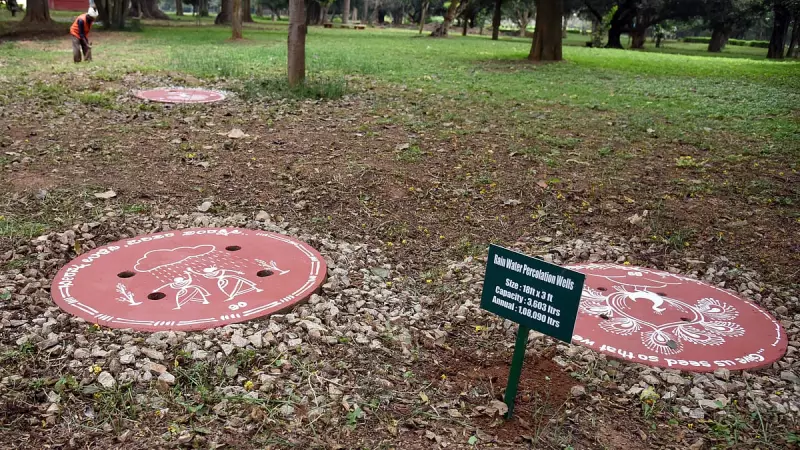
In a remarkable environmental success story, Bengaluru's iconic Lalbagh Botanical Garden has become the epicenter of a quiet water revolution that's making waves across the city. The installation of sophisticated percolation wells within the garden premises has triggered a significant rebound in groundwater levels, offering hope amid the city's ongoing water challenges.
The Groundwater Transformation
Recent data reveals an astonishing turnaround in Lalbagh's water table. Where once the groundwater languished at a concerning 4-5 feet below surface level, it now sits comfortably at just 1-2 feet depth. This dramatic improvement represents more than just numbers—it signifies a potential blueprint for urban water management across India's silicon valley.
Engineering Nature's Solution
The secret behind this success lies in the strategic implementation of percolation wells. Unlike traditional methods, these wells are specifically designed to capture and channel rainwater directly into the earth's subsurface layers. The process is both elegant and effective:
- Rainwater collection from surface areas
- Natural filtration through multiple geological layers
- Direct replenishment of aquifers
- Continuous groundwater enrichment
A Model for Urban Sustainability
What makes Lalbagh's achievement particularly significant is its location in the heart of a densely populated urban center. If this model can work here, it presents a scalable solution for other water-stressed areas of Bengaluru. The garden has effectively become a living laboratory demonstrating that urban development and environmental conservation can coexist harmoniously.
Beyond Lalbagh: City-Wide Implications
The success of the percolation well project extends far beyond the garden's boundaries. As groundwater levels rise in Lalbagh, there's a positive ripple effect on surrounding areas. This initiative showcases how targeted, nature-based solutions can complement larger infrastructure projects in addressing Bengaluru's complex water ecosystem.
The Lalbagh model proves that sometimes, the most advanced solutions are those that work with nature rather than against it. As Bengaluru continues to grapple with water security issues, this botanical garden offers both inspiration and a practical roadmap for sustainable urban water management.





